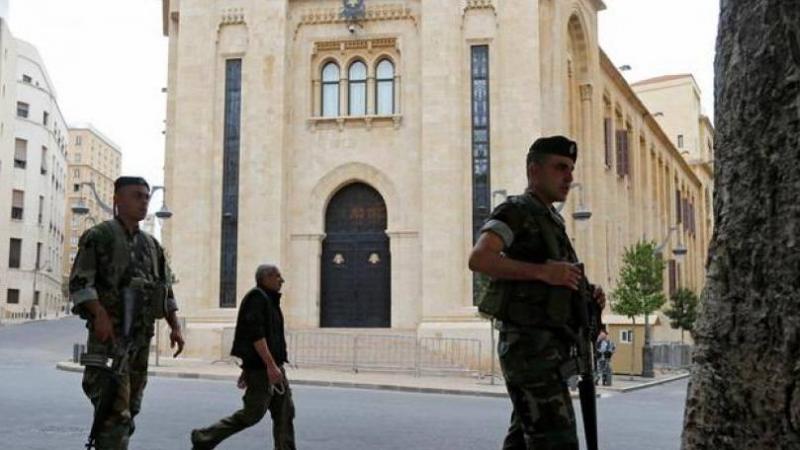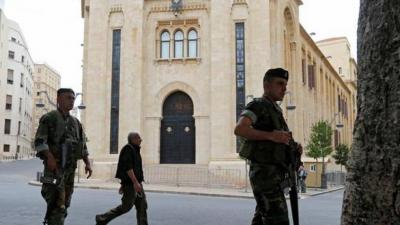A prominent parliamentary source confirmed that the vast majority in the Lebanese Parliament has immediately expressed its agreement to Speaker Nabih Berri's invitation to transform the parliamentary session scheduled for next Thursday, intended for electing a president, into a dialogue session. This move aims to find a breakthrough in the deadlock hindering the election. The source stated to "Asharq Al-Awsat" that Berri is awaiting the reactions from the Lebanese Forces Party and the Free Patriotic Movement to determine the next steps. If they do not respond positively, it could lead to an indefinite extension of the political impasse related to the election sessions, thereby putting the lawmakers in front of Lebanese public opinion and, by extension, the international community, which insists on ending the farcical calls for election sessions that result in a prolonged vacancy in the presidency.
The parliamentary source pointed out that merely agreeing from the Lebanese Forces Party and the Free Patriotic Movement to participate in the dialogue session, seeking an exit from the political deadlock surrounding the presidential election, could indicate that a consensus on a candidate favored by the parliamentary majority may be possible. The source added that their refusal to respond to Berri's invitation would inevitably lead to the repetition of the theatrical obstruction.
The source assessed that the coming hours will be decisive in determining the possibility of holding an open dialogue session or reverting to the election sessions that would end as previous ones have. He mentioned that participation from either party in the dialogue would encourage the Speaker to solidify his invitation for a dialogue, although he prefers a response that would ensure the full assembly of invitees for a round table meeting in one of the designated conference halls, with the participation of 12 to 15 deputies representing parliamentary blocs and groups, along with representatives of independent deputies.
The source emphasized that there is no alternative to dialogue. He noted that parliamentary blocs, whether in opposition or in power, as well as independent deputies, have expressed their agreement to Berri’s call for dialogue, except for the Lebanese Forces and the Free Patriotic Movement. He clarified that this time, the dialogue should not follow the pattern of previous discussions that resulted in recommendations that remained mere ink on paper, failing to materialize due to some participating parties' backtracking on their commitments to implement them through practical steps. He stated that the current political conditions are different from those that existed previously; especially since no one benefits from extending the catastrophic crises that have befallen Lebanon.
The parliamentary source indicated that Speaker Berri does not favor the idea of first holding a session dedicated to electing the president, which might quickly transform into a dialogue session, provided it remains open without being adjourned. He believes there is no political utility in adopting such a proposal since there would be difficulties in converting it into a session of dialogue that includes everyone, risking it turning into a session resembling a farcical dialogue where voices intermingle, thus fundamentally becoming a parliamentary session instead of ensuring focused participation for fruitful dialogue.
The source considered that there is no issue in the parliamentary blocs choosing their representatives for the open dialogue, which is expected to include independent deputies. He questioned the rationale behind splitting the dialogue into two sessions, as the election session will not lead to a breakthrough for lawmakers to establish grounds for ending the stagnation, as if the country were in good shape, and the parliament had ample time to maneuver in the lost situation.
He revealed that the Kataeb Party has expressed its willingness to participate in the dialogue, which also applies to the Democratic Gathering led by MP Taymour Walid Jumblatt, who has been proactive, not only in responding to Berri's call for dialogue but also because he emphasizes the importance of communication to seek a settlement to alleviate the presidential election crisis, which has become increasingly costly on all levels. He also disclosed that the "Renewal" parliamentary bloc, which includes MPs Michel Moawad, Ashraf Rifi, Fouad Makhzoumi, and Adeb Abdel Massih, has shown readiness to participate in the dialogue, noting that most of its members prefer to join, even though Rifi is hesitant to participate due to previous disappointing dialogue experiences, attributed to Hezbollah's retraction from its commitments.
He added that the bloc is waiting for Moawad's return from a brief visit to Washington, where he accompanied his daughter to enroll in one of its universities, asserting that their decision is final, which also applies to the “Moderation” bloc consisting of MPs from Akkar, Miniyeh, and Dinniyeh, in addition to the lawmakers from the reformist forces who have split across various parliamentary axes and could participate with two representatives.
Thus, the political milieu is eagerly anticipating the final response of the Lebanese Forces Party to Berri's call for dialogue, even as it insists, at this time, on the linkage between dedicating the first round of Thursday's session to electing a president, intending for it to remain open, allowing for the start of dialogue, so that the parliament can later resume electing in a second round. This implies that the parliament will engage in a long election day without outcomes that could halt the electoral process.




